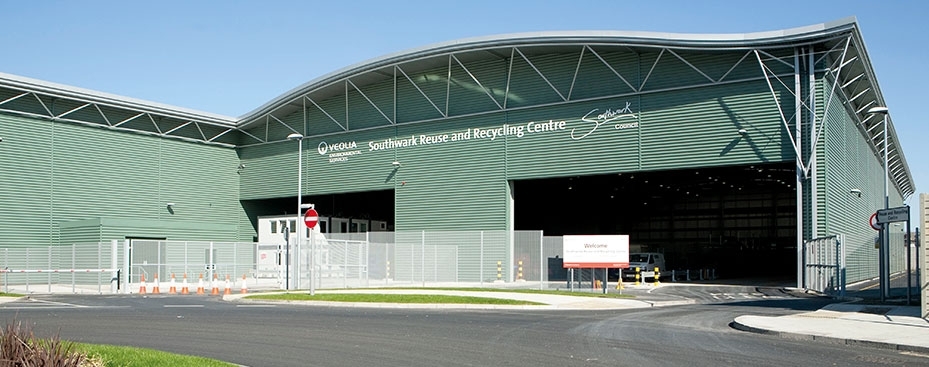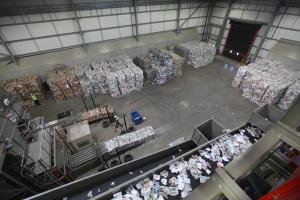[The second guest post of 2015 comes courtesy of Tytus Murphy, a final year PhD student studying Neuroscience who is a member of the Health and Environment Action Lab (H.E.A.L.). Tytus is also a key member of EcoSoc and the Fossil Free campaign at King’s. The views presented do not necessarily reflect those of King’s Sustainability]
On a dreary and damp evening November I ventured north to John Dodgson House, a halls of residence at UCL, to attend a talk by Natalie Bennett – leader of the Green Party of England and Wales. I wasn’t the only one either as nearly 150 students and members of the public squeezed into the common room on level minus one. This was basement democracy at its finest. This was the ‘green surge’ taking off.
Enter Bennett to passionately outline the Green Party’s vision for a positive society with ‘no fear’. This fear describes what many of us feel; trapped in a perpetual state of anxiety as we obsessively contemplate our job security, the rampant rise of inequality, the decimation of public services and climate change. A feeling exacerbated by our waning political influence to change any of the above as the major political parties further homogenise.
To eradicate this fear and futility, Bennett puts forward that we must acknowledge that the economic, societal, political and environmental crises that we are facing should not be regarded as separate entities but rather as being inextricably intertwined. Our current system hinges on inequality and exploitation, with the spoils of environmentally damaging consumerism concentrated among the top one per cent. A world based on cooperation and democracy in the eyes of The Greens, however, would prioritise the many, not the few, and would not risk the planet’s future with unsustainable consumption. The centerpiece of The Green Party is their focus on ‘The Common Good’ whereby society is designed and delivered for the good of everyone.
After decades of near pathological focus on consumer driven growth, it is mightily refreshing to see the embracement of markedly different values that challenge business as usual. In the words of Bennett, a vote for The Greens is a vote for actual change. In particular, a vote that supports an end to austerity, the re-introduction of nationalisation for key public services such as the railways, progressive wealth and land value taxes, free university education and a living wage of £10 per hour – to name a mere smattering of the policies that The Greens are fully committed to. Of note, in 2010, they received scant praise for providing a thorough and fully costed manifesto, which Bennett states will be delivered again in 2015. Judging by the Chancellor’s recent autumn statement, costing manifesto pledges requires at least some degree of fine-tuning by The Tories.
Most strikingly, it is their willingness to tackle corporate power that I find most encouraging. For example, Bennett recalled that in 2010 Caroline Lucas (the sole Green MP in Parliament) tabled the Tax and Financial Transparency Bill which called for all companies to publish on a country by country basis what taxes they pay. If Luxemburg or the Cayman Islands popped up on this list it would be clear something has gone awry. With this information, H M Revenue & Customs and Companies House could chase up the tax that is owed to the country. The Greens believe that companies cannot opt out of corporate social responsibility; paying tax in the countries that afford them with their opportunities to trade is an integral part of this.
Regrettably, and with true Westminster corporate panache, the BiIl did not complete its passage through Parliament; consigning it to the ‘ for recycling’ paper tray. Despite this setback, The Greens continue to take a brave stance against the corrosive force of corporate influence on our politics, as evidenced by their staunch opposition to the Transatlantic Trade and Investment Partnership (TTIP) proposals, a nefarious bilateral trade agreement that aims to remove regulatory ‘barriers’ which restrict the profits made by corporations.
A hugely exciting aspect of the green surge is the rekindling of political activism, particularly among 16-24 years. Young Greens have doubled their members during 2014. These are not your typical inchoate firebrands either; these kids speak in citations, are organised and have been a positive force in the National Campaign Against Fees and Cuts and in helping bring about the ‘Free Education March’ last November. Bennett is vociferous when she says that ‘politics is not something that is done to you, it is something that you do’. The Young Greens epitomise this.
Notably, both Bennett and Lucas gave galvanising addresses to students on the day of the Free Education March and have been vocal supporters of strikes in the public sector. Bennett even joined workers on the pickett line at St Pancras Hospital in October in support of fair pay for health workers. Nigel Farage may sincerely dabble in the fag-pint ‘he’s one of us’ tactic but has never meaningfully supported participatory democratic action in the authentic and purposeful way that Bennett and The Greens continue to.
After Bennett gave her engaging talk she took a series of wide-ranging questions from the attentive audience for over an hour and a half. This was young people engaging in mature discussion about the society we want for our futures, facilitated by a person of great integrity who prioritises transparency over the veneer of a fine-tuned soundbite. Bennett speaks with a gruff Aussie candidness, imploring us to offer our input into shaping the discussion and plans for our collective future. Being part of this really did feel like the new kind of politics The Greens are advocating, where we all are empowered to make the changes we want to make.
One audience member asked ‘how will The Green Party fix the NHS funding crisis’. Where Labour and The Tories normally give a combinatorial spiel centred on increased funding, ringfencing and finding/making improved efficiencies, Bennett answer was that ‘we want to make people healthier, ours is a deeply unhealthy society’. With the longest working hours in Europe, there is scant time to engage in the things which keep us away from the hospital wards with the greatest efficacy; namely exercise, adherence to a balanced diet and spending time in enriched environments, including more time in the company of loved ones. A Green Government would try to ensure that these vitally important elements of our lives would become sacrosanct through the provision of a basic income guarantee, a living wage and rent caps. Without the constant dread of worrying about next month’s finances, time is created for what is really important; engaging in our communities and tending to our physical and mental health.
The Greens’ willingness to focus on addressing the root causes of societies ills over cosmetic initiatives and frameworks really does set them apart from the crowd.
Now and then there is the actual green stuff like using the polluter pays principle to implement a carbon tax with the proceeds being used to fund energy efficiency measures for everybody. Not to mention redistributing significant subsidies (measured in hundreds of millions) away from fossil fuel companies and towards the renewable sector. It does seem somewhat perverse to help fund ecologically violent extractivism (e.g. fracking) when the scientific community has already unanimously labelled 80% of known carbon reserves in the ground as unsafe to burn. The Greens have understood this for a long time and Lucas recently lead calls to divest the pension fund for MPs from fossil fuels; yet another exemplar of The Greens commitment to rapid decarbonisation in the face of an increasingly turbulent climate.
Now in a true test of your bias dear reader, I highly recommend you visit this website: http://voteforpolicies.org.uk/ to compare the policies of six UK political parties on a selection of key issues. As you make your selections you are blinded as to which party has formulated the policy. The results from this intelligent exercise have been telling, with the Greens currently attracting the largest share of the vote at around 27% with the Tories languishing behind with 14%. As part of our New Year’s resolutions for 2014, Bennett wanted everybody to vote for what they believed in. Now just imagine if everybody did this come May 2015? We would be in for some very hopeful times indeed.
Tytus Murphy
Member of the Health and Environment Action Lab (H.E.A.L)




 itself from the fossil fuel industries. For those who have not followed the progress of the campaign, it really kicked off in October with the submission of a 1200 signature petition to the university administration. While that number has since increased to over 1400, the university finally declined the divestment option formally in mid-February. However, much to King’s credit, the Principal’s Debate went ahead as scheduled, and it made for a most lively and engaging evening, and further demonstrated the scope of the passionate support for divestment at King’s.
itself from the fossil fuel industries. For those who have not followed the progress of the campaign, it really kicked off in October with the submission of a 1200 signature petition to the university administration. While that number has since increased to over 1400, the university finally declined the divestment option formally in mid-February. However, much to King’s credit, the Principal’s Debate went ahead as scheduled, and it made for a most lively and engaging evening, and further demonstrated the scope of the passionate support for divestment at King’s. known carbon reserves will be left in the ground. Given that fossil fuel companies are valued largely on the reserves they hold, these so-called ‘stranded assets’ would rapidly sink such companies and lead to a crisis similar to that when the US housing bubble burst in 2008, only far worse. That bubble was worth a staggering $2.8 trillion. The value of the carbon bubble? An unfathomable $28 trillion. Campanale explained carefully the financial folly in continuing to invest in companies whose future projects are all but guaranteed to lose money, providing a sound financial case for divestment.
known carbon reserves will be left in the ground. Given that fossil fuel companies are valued largely on the reserves they hold, these so-called ‘stranded assets’ would rapidly sink such companies and lead to a crisis similar to that when the US housing bubble burst in 2008, only far worse. That bubble was worth a staggering $2.8 trillion. The value of the carbon bubble? An unfathomable $28 trillion. Campanale explained carefully the financial folly in continuing to invest in companies whose future projects are all but guaranteed to lose money, providing a sound financial case for divestment.

